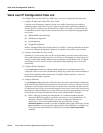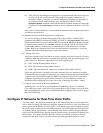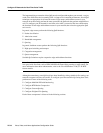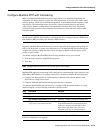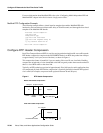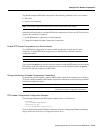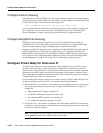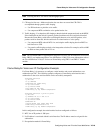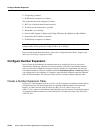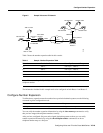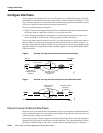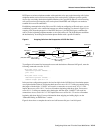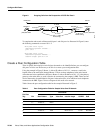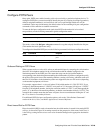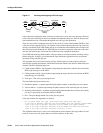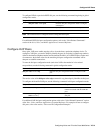
Configure Number Expansion
VC-24
Voice, Video, and Home Applications Configuration Guide
• Fair-queuing is enabled.
• IP RTP header compression is enabled.
The subinterface has been configured as follows:
• MTU size is inherited from the main interface.
• IP address for the subinterface is specified.
• Bandwidth is set to 64 kbps.
• Generic traffic shaping is enabled with 32 kbps CIR where Bc=4000 bits and Be=4000 bits.
• Frame Relay DLCI number is specified.
• IP RTP header compression is enabled.
Note When traffic bursts over the CIR, output rate is held at the speed configured for the CIR (for
example, traffic will not go beyond 32 kbps if CIR is set to 32 kbps).
For more information about Frame Relay, refer to the “Configuring Frame Relay” chapter in the
Wide-Area Networking Configuration Guide.
Configure Number Expansion
In most corporate environments, the telephone network is configured so that you can reach a
destination by dialing only a portion (an extension number) of the full E.164 telephone number.
Voice over IP can be configured to recognize extension numbers and expand them into their full
E.164 dialed number by using two commands in tandem: destination-pattern and num-exp. Before
you configure these two commands, it is helpful to map individual telephone extensions with their
full E.164 dialed numbers. This task can be done easily by creating a number expansion table.
Create a Number Expansion Table
In Figure 5, a small company wants to use Voice over IP to integrate its telephony network with its
existing IP network. The destination pattern (or expanded telephone number) associated with
Router 1 (located to the left of the IP cloud) are (408) 115-xxxx, (408) 116-xxxx, and
(408) 117-xxxx, where xxxx identifies the individual dial peers by extension. The destination pattern
(or expanded telephone number) associated with Router 2 (located to the right of the IP cloud) is
(729) 555-xxxx.



